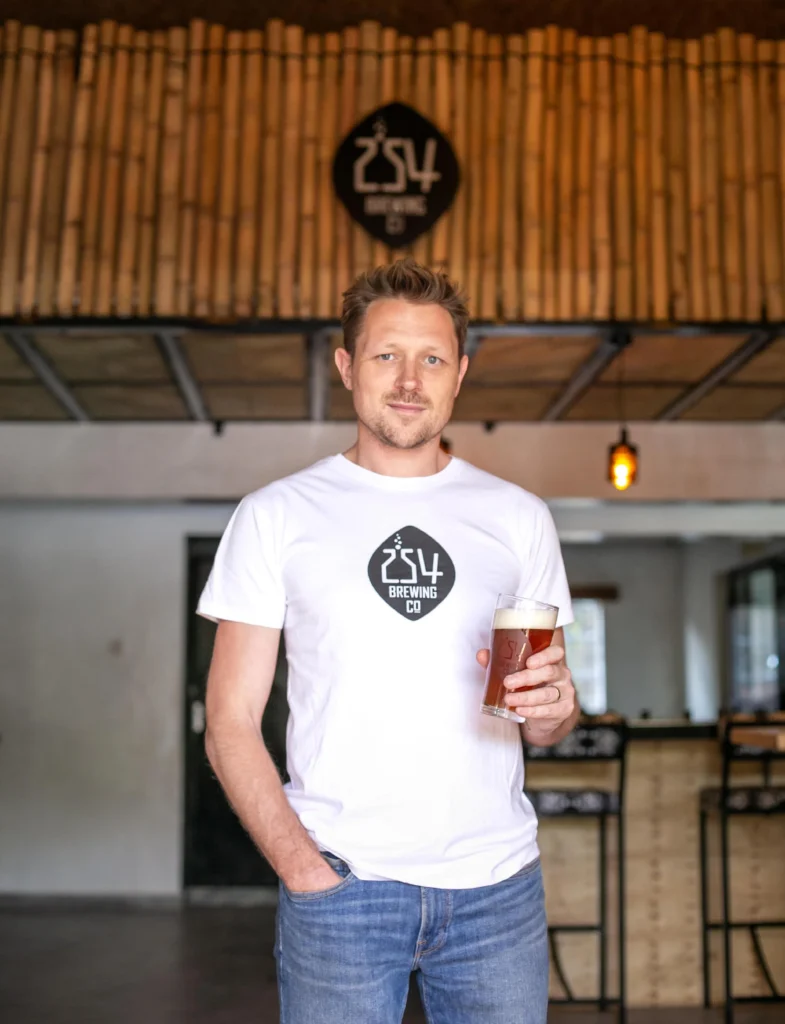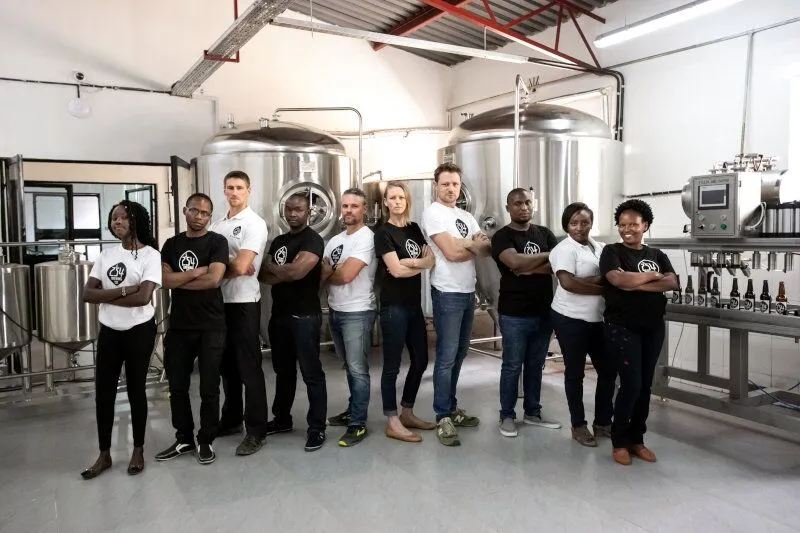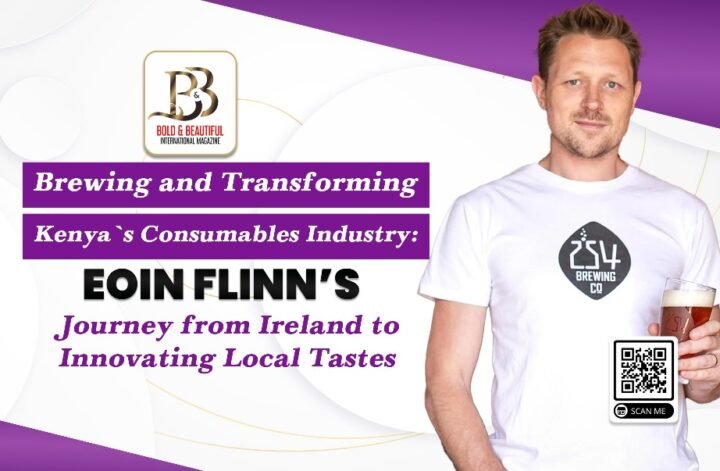In 2011, Eoin Flinn and his wife Megan Root made the bold decision to leave Ireland and relocate to Kenya, motivated by the untapped potential they saw in the country’s infrastructure and manufacturing sectors. Their initial vision was to create a business that leveraged local raw materials, employed local talent, and catered to the domestic market. However, their entrepreneurial journey took an unexpected turn, leading them into the world of craft beer—a venture that would eventually redefine their business path. After dabbling in homemade soaps, cleaning products, and kombucha from a makeshift lab in their backyard, Flinn and Root turned their attention to craft beer.

As consumers, they noticed a gap in the market and saw an opportunity. With minimal brewing experience, they partnered with two American home-brewing brothers to form 254 Brewing, a company dedicated to producing craft beers suited to local Kenyan tastes. Establishing a brewery in Kenya came with unforeseen challenges. “I had underestimated how difficult it could be in Kenya,” Flinn admits. The complex regulatory environment requires companies to secure excise and manufacturing licenses before selling alcohol, a process involving multiple government departments. Flinn and his partners raised $300,000 to build a brewery in Kikuyu, north of Nairobi, while navigating a two-year-long licensing process filled with red tape.

In January 2020, 254 Brewing finally received Kenya’s eighth brewing license in 100 years. Despite the early victory, the pandemic hit just two months after the company launched, closing bars across the country and crippling sales. However, 254 Brewing quickly pivoted to retail, securing orders from major retailers like Carrefour and Total petrol stations, making their beers available in over 60 supermarkets in Nairobi. What began with just 1,000 litres of beer per month in early 2020 has now scaled to 15,000 litres monthly, with revenues reaching $100,000. Despite the pandemic and regulatory hurdles, 254 Brewing continues to thrive, thanks to continuous experimentation with local flavors.

A breakthrough came when the company accidentally developed a beer with a flavor profile similar to muratina, a traditional Kenyan beverage. Named “Muratatu,” it quickly became their best-selling product. Flinn attributes their success to listening to what the market wanted. “We thought we knew what Kenyans wanted because we knew what we wanted—super hoppy IPAs. But our innovation and continuous experimentation have been key. That’s how we tap into what really resonates with Kenyan beer drinkers.”





